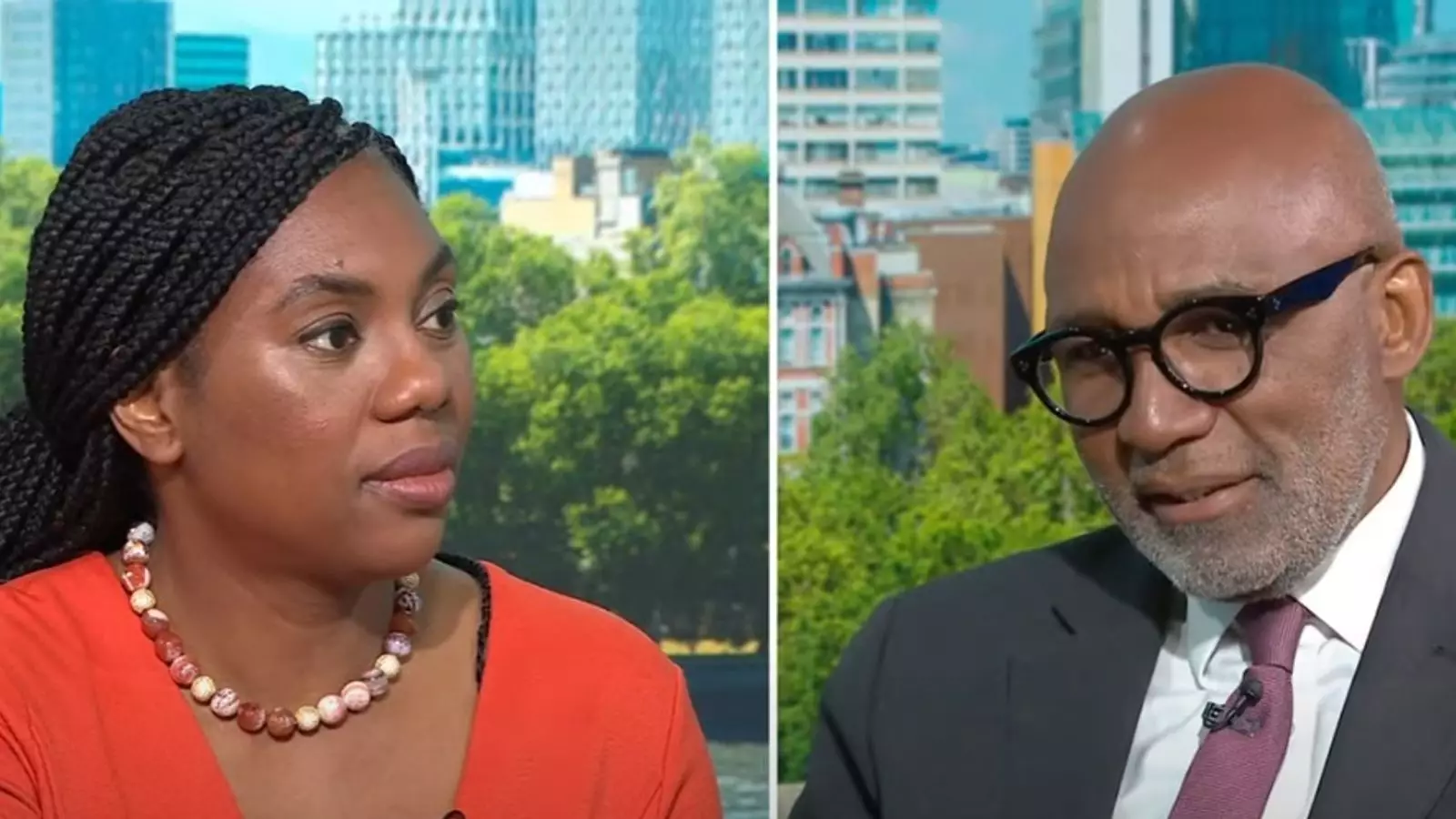Kemi Badenoch, the leader of the Conservative Party, finds herself navigating the treacherous waters of UK politics as local elections approach. Her stance on potentially forming coalitions with the Reform Party at the local level, while firmly rejecting any national agreements with Nigel Farage’s faction, raises critical questions. This duality in Badenoch’s position illustrates the precarious balancing act that she must perform not only to appease her party’s core supporters but also to address the changing political landscape in the UK.
While Badenoch’s strategy is clearly reactionary—intended to mitigate potential losses in local councils—it showcases the uncertainty gripping the Tory party. The impending council elections, marked by 23 councils up for grabs, put into focus the disarray within the Conservative ranks. Historically, these councils have been strongholds for the Tories, but with a significant shift in public sentiment evidenced by last year’s general election results, they now find themselves vulnerable. The tactic of leveraging local coalitions presents a desperate, if not dangerous, approach.
Badenoch’s claim that local councillors must prioritize community needs over pre-planned agreements sounds noble, yet it exposes a troubling reality. Can local politicians genuinely make the best decisions for their constituents while entangled in the chaos of a national identity crisis? Badenoch’s words imply a disconnection between the needs of local governance and the overarching party strategy, creating an unsettling picture of a party trying to justify its existence rather than effectively serving its public.
The Specter of Farage
The outright rejection of a national pact with Farage seems less like a principled stand and more of a calculated move to distance herself from the lingering stigma that Farage brings to the table. This cautious approach is commendable in principle, especially given that Farage’s presence often triggers visceral reactions and divisions. However, the strategic divide between the parties could ultimately weaken the Conservative position in the long-term. Rather than fostering unity on the right, Badenoch’s refusal could further entrench ideological divides, making it harder for any center-right faction to regain its footing in future elections.
While she’s preaching caution against “stitch-ups” and pre-election agreements, one cannot overlook the undercurrent of desperation in her attempts to galvanize support. The whispers of collaboration between senior Tory figures and Reform amplify the confusion; they are navigating a fractured landscape where traditional party loyalties are waning. Robert Jenrick’s comments, leaked off the record, reveal an aspirational desire among certain factions within the party to consolidate power, reflecting an essential fear of losing their electoral edge. This creates a disconcerting image of a party that is at war with itself, rather than focusing on policy innovation and governing.
The Influence of Voter Sentiment
As Badenoch prepares for the election showdown, her emphasis on creating a “credible Conservative offer” indirectly acknowledges the party’s vulnerability. This underscores the extent to which political leaders must adapt to shifting voter sentiments, and it raises the stakes as the electorate grows increasingly disillusioned with traditional parties. The Conservative Party, grappling with internal factions and external dissatisfaction, seems to be teetering on the edge of becoming obsolete if they fail to comprehend and respond to the evolving political zeitgeist.
Then there’s Labour, who, in their campaign launch led by Pat McFadden, appears to be wary of the potential for coalition talks themselves, even as the Tories are forced into the discussions for survival. McFadden’s absence of grand expectations signals a more cautious approach—one that could ultimately benefit Labour if the Conservatives cannibalize their own votes.
This landscape brimming with uncertainty illustrates a critical moment in British politics. The parties can either adapt through genuine collaboration at all levels or risk becoming irrelevant. As Badenoch juggles ambitious aspirations with a complex reality, voters are likely watching closely, assessing whether the promises floated in the ether of local politics can translate into meaningful governance—or simply another chapter in a tumultuous political saga marked by betrayals, opportunism, and fleeting alliances.
Ultimately, the narrative that Badenoch and her party craft in these local elections could have ramifications far beyond immediate council outcomes. It’s about the soul of the Conservative Party and, more significantly, the future of center-right politics in the UK. The risk she takes in attempting to redefine her party’s identity amidst the chaos could either rejuvenate the Tories or spell their doom as a formidable political entity.


Leave a Reply